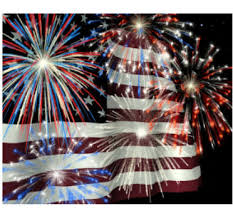 When talking about grilling safety, I usually think about food safety – cooking foods to safe temperatures to prevent food borne illness, proper handling before and after cooking, etc. However, two weeks ago, I stepped out onto my patio when I noticed a large cloud of smoke in the sky. As I looked around, I watched as a home in my neighborhood went up in flames. The quickness and intensity of the fire was overwhelming.
When talking about grilling safety, I usually think about food safety – cooking foods to safe temperatures to prevent food borne illness, proper handling before and after cooking, etc. However, two weeks ago, I stepped out onto my patio when I noticed a large cloud of smoke in the sky. As I looked around, I watched as a home in my neighborhood went up in flames. The quickness and intensity of the fire was overwhelming.
Luckily, no one was hurt, but the brand new home that the family had only lived in two months, was a total loss.
The cause of this fire? Grilling in the garage! I’ve seen people pull their grill into the garage to avoid rain drops but I don’t think anyone in our neighborhood will ever do that again. This gave a new meaning to me for the term grilling safety.
How can you protect your family from this type of loss?
The National Fire Prevention Association provides a great fact sheet with safety tips when grilling.
Tips from them and others include:
· All BBQ grills should be used only outdoors.
· The grill should not be placed near any part of the home, deck railings. Place it at least 10 feet from any structure.
· Never grill inside a garage or carport.
· Keep it clear of eaves and overhanging branches from nearby trees.
· Keep the grill clean – remove grease buildup from the grills and trays below the grills.
· Never leave your grill unattended.
· Do not attempt to move a hot grill.
There are also safety tips specific to the type of grill you are using.
· For a gas grill, check the gas tank for leaks before using it for the first time each year.
· Always make sure the lid is open before lighting it.
· For charcoal grills, use care when starting the coals. If using starter fluid, use only one made specifically for lighting charcoal.
· Keep the lighter fluid out of the reach of children and away from heat sources.
· When you finish grilling, cool the coals completely before safely disposing of them in a metal container.
In addition to these tips, it is a good idea to keep a spray bottle of water close and also a fire extinguisher nearby and know how to use it! A fire can grow quickly and you won’t have time to read instructions if that happens.
I really enjoy grilling out in the summer with family and friends. I know that I will not forget these safety tips and hope that you keep them in mind the next time you fire up your grill.
Sources:
Grilling Safety, National Fire Prevention Association. (2016) https://www.nfpa.org//-/media/Files/Public-Education/Resources/Safety-tip-sheets/Grilling_safety_Tips.ashx
AgriLife Extension experts offer tips on grilling, food safety (July 2016), https://today.agrilife.org/2016/07/25/agrilife-extension-experts-offer-tips-on-grilling-food-safety/
Tips for summer grilling safety, (2015) http://www.dasnr.okstate.edu/news/2015/tips-for-summer-grilling-safety
Author: Marilyn Rabe, Extension Educator, Family and Consumer Sciences, Ohio State University Extension, Franklin County, rabe.9@osu.edu
Reviewer: Michelle Treber, Extension Educator, Family and Consumer Sciences, Ohio State University Extension, Pickaway County, treber.1@osu.edu


